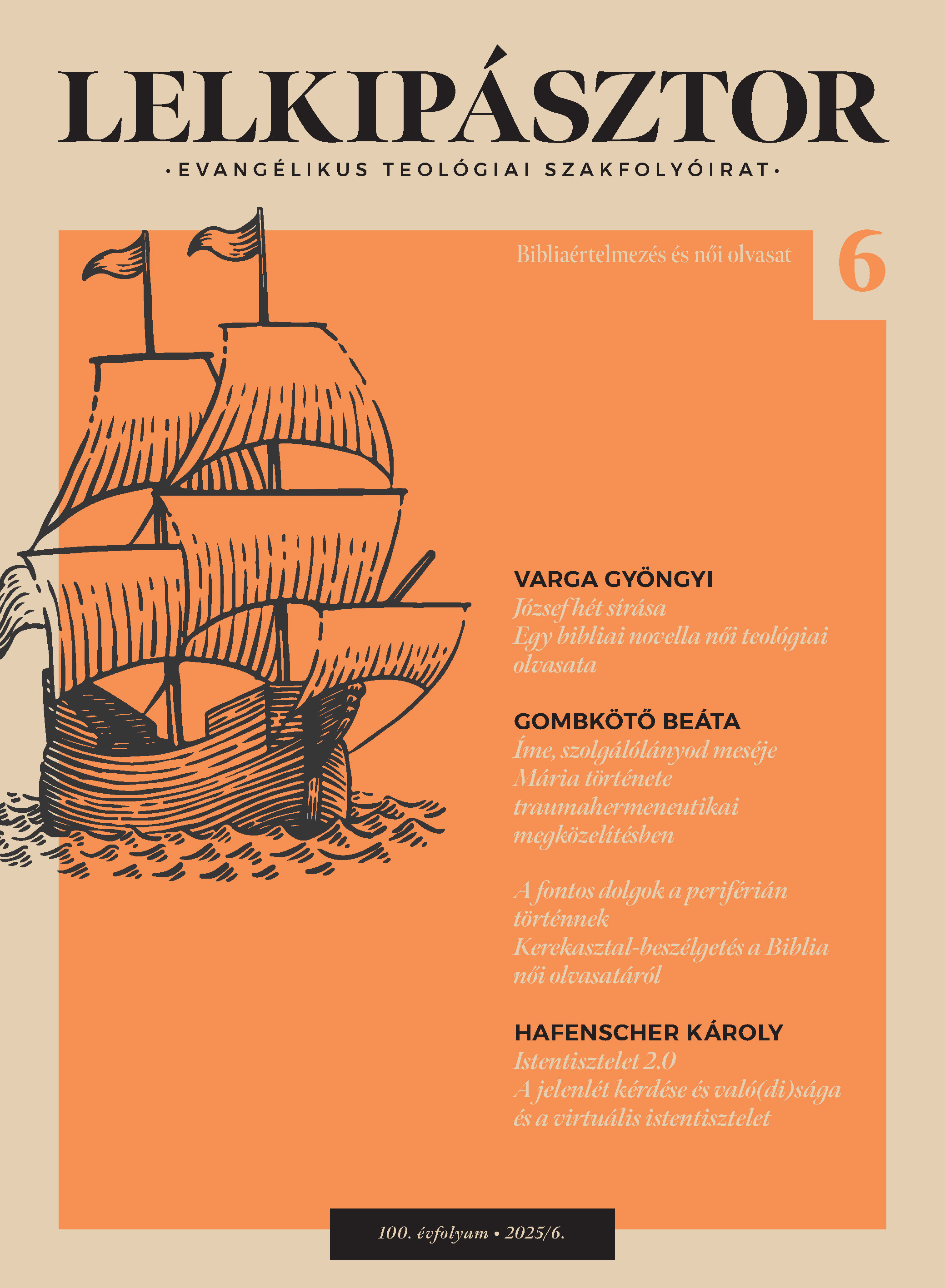The Tale of the Lord’s Handmaid
Mary's Story from a Trauma Hermeneutic Perspective
Abstract
This study examines Mary’s story through the lens of trauma, highlighting how the loss of bodily autonomy, communal threat, and identity disruption resonate with experiences of trauma survivors. In the Magnificat, Mary reclaims her voice and reshapes her suffering into a narrative of hope, resistance, and post-traumatic growth. A trauma-informed theological reading opens space to reinterpret the Incarnation through the lived reality of female embodiment. This approach foregrounds critical questions about consent in divine-human encounters, exposing the tension between divine initiative and the autonomy of the female body. It also challenges religious narratives that have historically justified masculine dominance and social control over women. Mary’s experience thus becomes a site of theological transformation and critical reframing.
References
Atwood, Margaret 2017. A szolgálólány meséje. Jelenkor Kiadó, Budapest.
Czigányik Zsolt 2011. A szabadsághiány anatómiái. Akadémiai Kiadó, Budapest. (Modern filológiai füzetek 61.)
Herman, Judith 2001. Trauma and Recovery: From Domestic Abuse to Political Terror. Pandora, London.
Kügler, Joachim 2023. Zeus Syndrome. A Very Short History of Religion-Based Masculine Domination. Routledge, New York. https://doi.org/10.4324/9781003269977
Miles, Jack 2019. God. A biography. Vintage Books, New York.
O’Donnell, Karen 2018. Broken Bodies. The Eucharist, Mary and the Body in Trauma Theology. SCM Press, London.
Rambo, Shelly 2017. Resurrecting Wounds. Living in the Afterlife of Trauma. Baylor University Press, Waco.
Shiro, Edith 2023. A trauma váratlan ajándéka. HVG Könyvek, Budapest.

This work is licensed under a Creative Commons Attribution-NonCommercial-NoDerivatives 4.0 International License.




